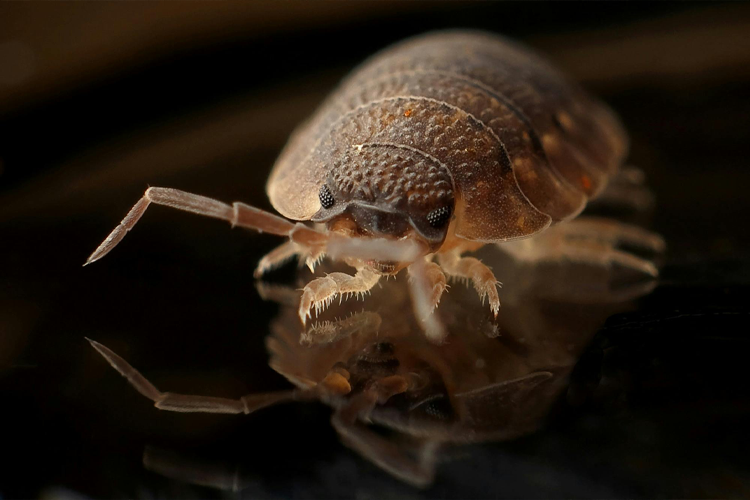Finest Kings Bug Control Cincinnati: Premier Exterminators
Finest Kings Bug Control Cincinnati: Premier Exterminators
Blog Article
Types of Parasite Control: Which Method Is Right for Your Invasion?
When encountered with a parasite invasion, the selection of an appropriate approach for parasite control is essential in successfully managing the scenario. By checking out the various types of bug control methods offered, people can make informed choices customized to their unique circumstances, guaranteeing an extra sustainable and efficient outcome in parasite elimination.
Chemical Bug Control
Chemical pest control entails the usage of artificial or naturally derived chemicals to take care of and remove pest populations properly. This approach is typically utilized in farming, forestry, and domestic setups to battle a vast array of parasites, including rodents, weeds, and insects. Making use of chemical pesticides can give quick and targeted remedies to pest problems, making it a popular choice for several people and companies.
Among the key benefits of chemical insect control is its ability to promptly remove pests, decreasing the danger of damage to plants, residential property, and human wellness. By utilizing certain chemicals that target certain bugs, this method can efficiently manage infestations while lessening harm to helpful microorganisms and the atmosphere when used appropriately.
However, making use of chemical bug control also raises issues about possible damaging effects on non-target species, water resources, and human health and wellness. It is crucial to adhere to safety guidelines, use chemicals responsibly, and take into consideration alternative bug control approaches to lessen these threats and make certain sustainable pest administration practices.
Biological Insect Control
Biological bug control, also recognized as biocontrol, utilizes living microorganisms to lower and manage insect populations naturally. By using the parasite's natural killers or pathogens, organic pest control provides a environmentally friendly and sustainable service to pest management.

Mechanical Insect Control
Utilizing hand-operated and physical methods to manage pest populaces, mechanical pest control supplies a different approach that does not rely upon the usage of living organisms or synthetic chemicals. This approach involves making use of barriers, traps, or other devices to literally deter or remove bugs. By obstructing bug entry points or establishing catches to catch them, mechanical parasite control can effectively decrease infestations without presenting chemicals into the setting.
One usual instance of mechanical insect control is making use of mesh displays on windows and doors to prevent pests from going into buildings. This straightforward yet reliable technique works as a physical barrier, keeping insects out while enabling appropriate air flow. Additionally, tools like mousetraps, fly swatters, and ultrasonic repellents drop under the mechanical bug control group.
While mechanical pest control techniques can be labor-intensive and need regular tracking and maintenance, they offer a ecologically pleasant and sustainable remedy for managing insect problems. By integrating various mechanical strategies, homeowner can produce a comprehensive parasite control strategy that reduces dependence on chemical pesticides.
Physical Bug Control

Some common physical parasite control techniques include making use of barriers such as displays or nets to stop parasite access, catches to record and eliminate pests, and hand-picking to literally remove pests from plants or structures. Furthermore, methods like warm treatments can be made use of to control pests like bed pests by elevating the temperature to levels that are lethal to the pests.
Physical bug control is specifically useful in integrated insect monitoring (IPM) approaches, where numerous insect control techniques are incorporated for effective parasite monitoring while minimizing using chemicals. By making use of physical pest control methods, people can successfully deal with parasite invasions with minimal ecological effect.
Integrated Insect Management
When executing physical insect control techniques as component of parasite monitoring methods, Integrated Bug Monitoring (IPM) becomes a comprehensive strategy that leverages various techniques to efficiently regulate pest populations. IPM concentrates on lasting prevention of insects with a combination of organic, social, physical, and chemical devices customized to certain pest problems. By integrating several control techniques, IPM aims to lessen the dangers related to bugs while likewise lowering reliance on chemical services.
One secret element of IPM is the focus on monitoring and evaluating pest populaces to determine one of the most suitable control techniques. This proactive technique permits early intervention and targeted techniques, resulting in more reliable insect management. Furthermore, IPM advertises environmentally pleasant methods by prioritizing non-chemical control techniques and only using chemicals as a last resource.
Conclusion

By using the bug's all-natural predators or pathogens, organic pest control supplies a sustainable and environmentally friendly option to pest internet monitoring. - Kings cincinnati pest control
Utilizing manual and physical techniques to handle pest populations, mechanical bug control supplies an alternative approach that does not depend on the use of living microorganisms or artificial chemicals.An efficient approach to taking care of pest populaces without counting on chemical or organic techniques entails the usage of physical bug pest control person control strategies.When carrying out physical bug control approaches as part of parasite monitoring strategies, Integrated Bug Monitoring (IPM) arises as a detailed approach that leverages different strategies to successfully regulate pest populaces. Chemical bug control entails the usage of pesticides, organic parasite control makes use of all-natural killers, mechanical parasite control involves physical obstacles, physical pest control consists of trapping or eliminating bugs, and integrated parasite management combines several approaches for an alternative strategy to pest control.
Report this page